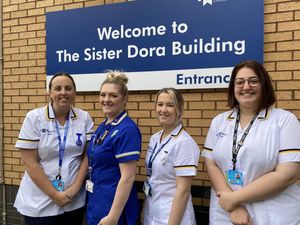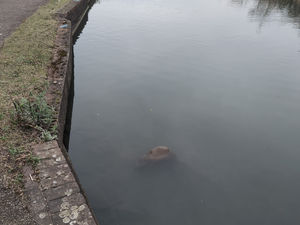Degree apprenticeship breathes new life into careers of aspiring midwives
A new degree apprenticeship introduced by the University of Wolverhampton is breathing new life into the careers of prospective midwives.

The university has highlighted the Midwifery Degree Apprenticeship as part of National Apprenticeship Week.
It is approved by the Nursing and Midwifery Council (NMC) and has been designed to support prospective midwives in achieving the knowledge, skills and behaviours to meet standards outlined by the NMC.
The role of the midwife acts as a catalyst for improving the health of families and has a strong focus on current public health priorities, the care of vulnerable groups, and the increasingly complex health needs of childbearing women.
Apprentices studying for the degree apprenticeship, which is funded by their employer through the Apprenticeship Levy, will be employed in a job with legal and contractual terms and conditions. Following successful completion of the programme the Apprentices are awarded a Bachelor of Midwifery (with Honours) apprenticeship qualification and an apprenticeship award certificate. They are also then eligible to enter the NMC register as a midwife.
This programme offers “added value” opportunities such as Resuscitation Council-approved neonatal life support training and Undergraduate PrOMPT (Practical Obstetric Multi-Professional Training) courses, as well as providing full training to become competent in NIPE (newborn and infant physical examination) prior to registration.
Alexandra Birch, senior lecturer in midwifery in the university’s Faculty of Education, Health and Wellbeing, said: “We do need more midwives out in practice and this is a good way to get people into the workforce. It’s a relatively new apprenticeship and we’re one of the first universities to offer the programme.
“It’s really important to have degree apprenticeships available. People may struggle for a number of reasons entering higher education, particularly financially, so apprenticeships are a really great way for people to fulfil their potential and help them to live their dream. They’re in employment receiving a wage while they’re training which helps to keep them afloat financially, helping them to support their families, and being able to utilise the Apprenticeship Levy means they don’t get into debt while training.”
Vicky Crump, aged 40, who is an apprentice working at The Royal Wolverhampton Hospitals NHS Trust, was previously a primary school teacher who had always wanted to be a midwife. After she had her own children and they started to grow up, she decided to switch careers and pursue her dream of becoming a midwife.
She said: “I’m studying full-time for this degree so there are challenges associated with that with assignments due in and exams, especially when you’re balancing that with family life. But we get lots of support from the university with study skills from the library, from lecturers and in the workplace.
“Everything we learn we can apply in practice, so when we’re learning about anatomy and physiology I now know why we do those tasks in the workplace which is really useful from a practical perspective.”
During the 15th annual National Apprenticeship Week, the university is showcasing the impact apprenticeships have on communities, local businesses and regional economies.
Employers who are interested in talking to the Apprenticeship Hub about degree apprenticeships should visit the website, telephone 0800 953 3222 or email apprenticeshiphub@wlv.ac.uk
Anyone wanting to find out more about how degree apprenticeships can benefit employees and business, should check out this page on the website wlv.ac.uk/naw2022.




